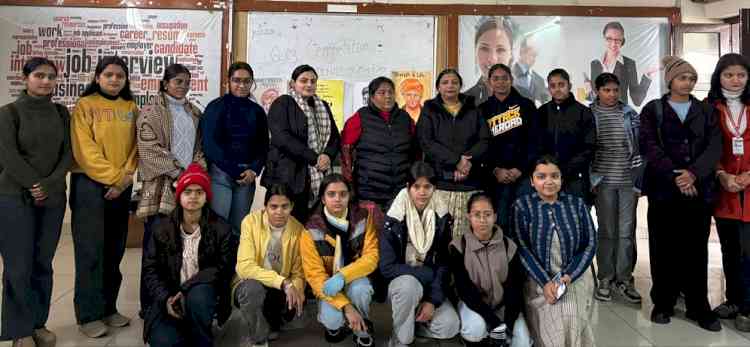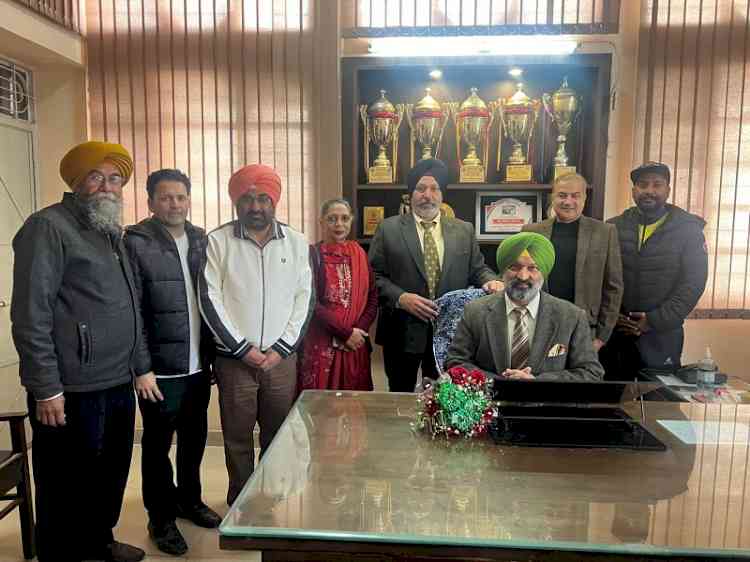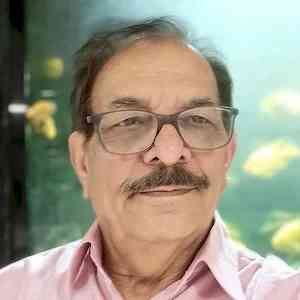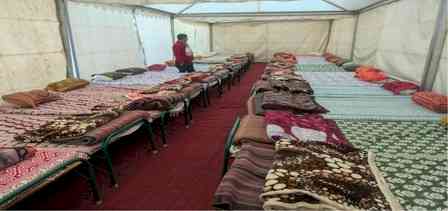Himachal Governor to inaugurate mega meet on Himalayan sustainable development at Nauni
Dr. YS Parmar University of Horticulture and Forestry, Nauni will be hosting a three-day HIMSamwaad-Trans Himalayan Conference on Localised Solutions and Implementation Strategy from 19-21 December, 2022.

Dr. YS Parmar University of Horticulture and Forestry, Nauni will be hosting a three-day HIMSamwaad-Trans Himalayan Conference on Localised Solutions and Implementation Strategy from 19-21 December, 2022. This event is being organized under the joint aegis of UHF, Sewa International and the Indian Ecological Society.
Prof. Rajeshwar Singh Chandel, UHF Vice-Chancellor said that this conference is organized each year by Sewa International and this year’s event is being organized in the mid hills of Himachal Pradesh. He said various issues will be discussed by the experts at this conference including local solutions and implementation strategies. Prof. Chandel informed that more than 200 policymakers, social workers, and researchers from the Himalayan countries of Bhutan and Nepal, and Himalayan states will deliberate on the sustainable development of the Himalayan region for three days at Nauni.
He said that besides several important topics, deliberations on the need for self-sustaining development in the Himalayan region after Covid and the primary need to make the local communities self-reliant by removing obstacles in their development will be carried out by the participants. The conference will be inaugurated by the Governor of Himachal Pradesh Shri Rajendra Vishwanath Arlekar. Shri Rakesh Kanwar, Secretary Agriculture of Himachal Pradesh; Shri Vaidya Rajesh Kotecha, Secretary Ministry of Ayush; Dr. Kshama Metre, National Director CORD; Shri Shrawan Kumar Sharma, Executive Director CESOD, Prof. Ravindra S Gavali, National Institute of Rural Development & Panchayati Raj; Prof. Vikas Bhatia, Executive Director, AIIMS Bibinagar; Shri Rajeev Issar, Advisor UNDP are among the many prominent names who will be sharing their views during this conference.
Prof. Chandel said that the recent development in the transformation from industry based agriculture to Natural Farming has shown a potential to be a strong livelihood resource for Himalayan farming communities. This methodology provides strength to the whole ecosystem, water, soil, biodiversity, nutrition and ensures the well-being of the whole farming community in Himalayan region. Natural farming will be a common theme in all the sessions.
The COVID pandemic has highlighted the urgent need for self-sustainable development in the Trans-Himalayan region, making the communities self-reliant and insulated from external impediments to their development. Shri Ashok Goyal, President of Sewa International said, "In these three days, through various sessions, the goal of Sustainable Development Goals (SDGs) will be discussed and its main topics are climate change, reasons for climate change-related disasters and how to solve it."
With this awareness, HIMSamwaad-2022 attempts to provide a platform for multiple stakeholders of the Trans-Himalayan region to realign our integrated sustainable development approach to the transformed post-COVID reality of the region. Additionally, the focus of the conference shall be on charting a roadmap for implementing localised solutions to Trans-Himalayan region issues while consenting to the idea of development. The conference shall also set the stage for the 4th SDG conference by developing a foundational framework for the evaluation of the implementing strategies.
Why HIMSamwaad is important
The year 2022 marks thirty years of Agenda 21, an action agenda for global partnership by United Nations member states towards sustainable development. Agenda 21 defines sustainable development in concrete actionable items to be executed by the UN, multilateral organisations, and governments around the world at local, national, and global levels. Agenda 21 is a catalyst for both global and local collaborations that have shaped the last 3 decades of development agenda.
The goal of HIMSamwaad
The sustainable development goals succeeding both Agenda 21 and millennium goals were developed as a blueprint to achieve a better and more sustainable future for all. There are 17 synthesized and interlinked actionable goals, which aim to redefine our collective future and establish a future global development framework. The global community is committed to achieving the 17 Sustainable Development Goals (SDGs) to be realised in 2030 which were adopted in September 2015 at the UN Sustainable Development Summit. The SDGs are a part of a fifteen-year action plan and are integrated with 169 indivisible targets that aim to balance the four core dimensions of Sustainable Development: Economic, Social, Cultural and Environmental. The 193 member-state governments adopted the SDGs and, with support from national stakeholders and local partners, sought localized implementation of the universal goals.
Sewa International pioneered societal development work on SDGs. presence on the ground working with local communities in resilience building and with local partners in the capacity building provided unique insights. We recognised the need for alignment of the SDGs based on localized priorities from an Indian perspective. We organized the 1st SDGs Conference in Delhi on 6 December 2018, with the aim to ignite discussion on the relevance and definition of the SDGs in an Indian context. The conference saw participation from policymakers, researchers, civil society organizations, and government institutions of the country as well as knowledge sharing by delegates from 13 other countries. The conference culminated in a mapping exercise for the implementation of SDGs in various parts of India and a five-year roadmap for realising sustainable development at national level.
The theme of Himsamvad 2022 is - Calling for Local Solutions and Implementation Strategy. COVID-19 has emphasized the urgent need for self-sustaining development in the Himalayan region, to make communities self-reliant and avoid constraints in their development. With this awareness, HIM Samvad-2022 - a meeting of several stakeholders in the Himalayan region to re-formulate our integrated sustainable development approach for the changed post-Covid reality of the region.
Additionally, the focus of the conference is to draw a roadmap for implementing local solutions to the issues of the Trans-Himalayan region while agreeing on the idea of development. Developing a basic framework for evaluation under its policies, is to be prepared and presented in the fourth session of the dialogue. Let us tell you that Seva International works in more than 20 countries of the world. This institute came into limelight when Ukraine had evacuated more than 3500 students from there during the crisis.


 City Air News
City Air News 









